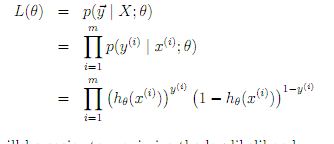- 从零开始:用Python搭建你的第一个机器学习模型
Blossom.118
分布式系统与高性能计算领域python机器学习开发语言人工智能深度优先深度学习命令模式
在当今数字化时代,机器学习已经渗透到我们生活的方方面面,从推荐系统、语音识别到自动驾驶,它正在改变着世界的运行方式。对于初学者来说,进入这个领域可能会感到有些迷茫。本文将带你从零开始,使用Python搭建一个简单的机器学习模型,帮助你迈出进入人工智能世界的第一步。一、机器学习简介机器学习是一种人工智能技术,它使计算机能够从数据中学习并做出预测或决策。它主要分为三类:监督学习、无监督学习和强化学习。
- [Android] 智能书库 电子文档小说阅读器 Readest v0.9.26
Q_Q493753155
软件分享小说阅读器
一款免费开源的电脑端/手机端皆可用的的电子书阅读器,电子书资源越来越丰富,但各式各样的格式却不适配了,这个Readest就刚好能够解决这个问题。————————————————————功能介绍:智能书库系统:自动分类整理电子书,告别文件夹堆积混乱支持自定义标签和分类,打造个人专属书架强大的元数据编辑功能,轻松修正书籍信息海量格式支持:一站式读取EPUB、MOBI、KF8、FB2、CBZ等主流格式P
- 终于!有人总结了大模型学习资料!
AI产品经理
学习transformer语言模型人工智能数据库
大家好,我发现了一个大模型学习的神库,包含大量LLM教材和资料,并绘制了学习路线图。可以帮助快速掌握大模型的应用和开发技巧。前排提示,文末有大模型AGI-CSDN独家资料包哦!GitHub地址:https://github.com/mlabonne/llm-courseLLM基础知识1.机器学习之数学基石在踏足机器学习的殿堂之前,深入理解其背后的数学原理至关重要。线性代数:它如同桥梁,连接着算法与
- 深入解析C#运算符与类型强制转换:从基础到实战
Leon@Lee
c#开发语言
一、C#运算符体系详解1.1基础运算符分类C#运算符可分为六大类,其优先级与计算规则是代码逻辑的核心基础:算术运算符:+(加)、-(减)、*(乘)、/(除)、%(取余)、++(自增)、--(自减)。例如:inta=10,b=3;Console.WriteLine(a%b);//输出1比较运算符:==(等于)、!=(不等于)、>(大于)、=(大于等于)、>(右移)。例如:intx=5;//二进制01
- #基于Django实现机器学习医学指标概率预测网站
Ljugg
django机器学习python
基于Django实现机器学习医学指标概率预测网站一、引言在当今数字化医疗的大背景下,利用机器学习模型结合Web应用进行医学指标的概率预测具有重要的实际意义。本文将详细介绍一个基于Django框架构建的医学指标概率预测系统,通过结合随机森林模型,实现根据用户输入的多项医学指标预测特定事件发生的概率。二、项目结构概述项目主要由以下几个核心部分组成:模板文件(templates):负责页面的展示和用户交
- 什么是AI大模型?常见的AI大模型有哪些?
AI产品经理
人工智能机器学习深度学习自然语言处理gpt
什么是AI大模型?在人工智能领域,"AI大模型"的官方概念通常指的是具有大量参数的机器学习模型,这些模型能够捕捉和学习数据中的复杂模式。参数是模型中的变量,它们在训练过程中不断调整,以便模型能够更准确地进行预测或分类任务。AI大模型通常具有以下特点:高参数量:AI大模型含有数百万甚至数十亿的参数,这使得它们能够学习和记忆大量信息。深度学习架构:它们通常基于深度学习架构,如卷积神经网络(CNNs)用
- 《Python机器学习基础教程》第十二章计算机视觉基础12.8 深度解析:目标检测算法(R-CNN、Fast R-CNN、Faster R-CNN、YOLO和SSD)及其应用场景
精通代码大仙
机器学习python机器学习开发语言
12.8深度解析:目标检测算法(R-CNN、FastR-CNN、FasterR-CNN、YOLO和SSD)及其应用场景12.8目标检测12.8.1目标检测的基本概念12.8.2R-CNN12.8.3FastR-CNN12.8.4FasterR-CNN12.8.5YOLO12.8.6SSD12.8.7实操代码示例12.8.7.1使用R-CNN进行目标检测12.8.7.2使用FastR-CNN进行目标
- 《Python实战进阶》第38集:机器学习模型优化与调参——Grid Search 与 Hyperopt
带娃的IT创业者
Python实战进阶python机器学习开发语言
第38集:机器学习模型优化与调参——GridSearch与Hyperopt摘要在机器学习项目中,超参数的设置对模型性能至关重要。本集聚焦于如何通过网格搜索(GridSearch)和Hyperopt这两种超参数优化方法,提升模型的性能。我们将从理论入手,介绍超参数搜索的核心概念,并通过两个对比实战案例展示如何使用这两种方法优化支持向量机(SVM)和XGBoost模型。最后,我们还将探讨自动化调参工具
- 《Python实战进阶》第39集:模型部署——TensorFlow Serving 与 ONNX
带娃的IT创业者
Python实战进阶pythontensorflowneo4j
第39集:模型部署——TensorFlowServing与ONNX摘要在机器学习项目中,训练好的模型需要被部署到生产环境中才能发挥实际价值。本集聚焦于如何将模型高效地部署到生产环境,涵盖TensorFlowServing和ONNX两种主流工具的使用方法。我们将从理论入手,介绍模型部署的核心概念,并通过实战案例展示如何使用TensorFlowServing部署图像分类模型,以及如何利用ONNX实现跨
- 机器学习中使用Seaborn绘制KDE核密度估计曲线
闵少搞AI
人工智能机器学习人工智能算法
核密度估计图(KDE)核密度估计(KDE)图,一种可视化技术,提供连续变量概率密度的详细视图。在本文中,我们将使用IrisDataset和KDEPlot来可视化数据集。在机器学习中,核密度估计(KDE)不仅用于可视化数据分布,还被用作一种非参数方法来估计数据的概率密度函数。这在特征工程、异常检测、生成模型等领域中有重要应用。核密度估计在机器学习中的应用特征工程:通过KDE可以理解特征的分布情况,从
- 【多线程-第四天-SDWebImage初体验 Objective-C语言】
清风清晨
Objective-Cobjective-c开发语言macos
一、SDWebImage初体验1.下边我们来快速的使用一下SDWebImage,看看它是否足够的方便,1)首先,导入一个SDWebImage提供给我们的一个分类,#import“UIImageView+WebCache.h”2)调用一行代码[self.imageViewsd_setImageWithURL:url];这件事情就OK了,OK的话,我们要做一个练习,就做我们之前的这个练习,就是我们之前
- 多层感知机(MLP)全面指南
MobiCetus
强化学习开发语言java算法c++pythoneclipsegithub
多层感知机(MLP)是一种人工神经网络,由多个神经元层组成。MLP中的神经元通常使用非线性激活函数,使得网络能够学习数据中的复杂模式。MLP在机器学习中非常重要,因为它能够学习数据中的非线性关系,使其成为分类、回归和模式识别等任务中的强大模型。神经网络基础神经网络或人工神经网络是机器学习中的基本工具,支持着许多最先进的算法和应用,广泛应用于计算机视觉、自然语言处理、机器人技术等领域。一个神经网络由
- (4)绪论三:归纳偏好
在下_诸葛
《机器学习》算法机器学习数据挖掘
通过学习得到的一个模型对应了假设空间的一个假设(这是上节假设空间的内容)归纳偏好或偏好:机器学习算法在学习过程中对某种类型假设的偏好(对于一个新西瓜来说:让一个训练好的模型来判断它为好瓜还是坏瓜?可以根据某种特征判断它为好瓜,也可以根据另外一种特征判断它为坏瓜,归纳偏好就是看哪一个特征更为重要,从而根据比例将新西瓜进行分类)如果没要偏好,说明两种特征都一样重要,这时模型对新西瓜的预测,时而判断它是
- 毕设成品 基于机器学习的乳腺癌数据分析
m0_71572237
毕业设计python毕设
文章目录0简介模型评估KNNClassifierLogisticRegressionClassifierRandomForestClassifierDecisionTreeClassifierGBDT(GradientBoostingDecisionTree)ClassifierAdaBoostBaggingSVM最后0简介今天学长向大家分享一个毕业设计项目毕业设计基于机器学习的乳腺癌数据分析项目
- 【数据可视化应用】绘制类别插值地图(附Python代码)
文宇肃然
可视化工具数据分析实战应用python机器学习sklearn
sklearn.KNeighborsClassifier()终于这篇推文将机器学习和可视化完美的结合起来,即:机器学习处理数据,数据可视化技术展现、美化数据(以后的深度学习部分也会延续这个风格,只不过比重不同而已)。首先,我们给出我们今天的数据:散点数据和四川省的地图文件,python读取操作如下:import pandas as pdimport numpy as npfrom sklearn.
- 【c++初阶】C++入门(上)
悦心无谓
C++c++开发语言编程语言
✅✅✅✅✅✅✅✅✅✅✅✅✅✅✅✅✨✨✨✨✨✨✨✨✨✨✨✨✨✨✨✨追风赶月莫停留平芜尽处是春山✨✨✨✨✨✨✨✨✨✨✨✨✨✨✨✨✅✅✅✅✅✅✅✅✅✅✅✅✅✅✅✅C++入门C++关键字C++命名空间命名空间的由来命名空间的用法C++输入和输出输入输出C++缺省参数缺省参数的定义缺省参数分类缺省参数的用法C++重载重载的定义重载的规则重载的分类C++支持重载的原因C++关键字1、auto-用于声明自动变量
- 用Python打造智能宠物:强化学习的奇妙之旅
Echo_Wish
Python笔记Python算法python宠物人工智能
友友们好!我是Echo_Wish,我的的新专栏《Python进阶》以及《Python!实战!》正式启动啦!这是专为那些渴望提升Python技能的朋友们量身打造的专栏,无论你是已经有一定基础的开发者,还是希望深入挖掘Python潜力的爱好者,这里都将是你不可错过的宝藏。在这个专栏中,你将会找到:●深入解析:每一篇文章都将深入剖析Python的高级概念和应用,包括但不限于数据分析、机器学习、Web开发
- Python 实战:手语翻译系统——从视频到文本的智能转换
Echo_Wish
Python笔记Python算法从零开始学Python人工智能python音视频开发语言
友友们好!我是Echo_Wish,我的的新专栏《Python进阶》以及《Python!实战!》正式启动啦!这是专为那些渴望提升Python技能的朋友们量身打造的专栏,无论你是已经有一定基础的开发者,还是希望深入挖掘Python潜力的爱好者,这里都将是你不可错过的宝藏。在这个专栏中,你将会找到:●深入解析:每一篇文章都将深入剖析Python的高级概念和应用,包括但不限于数据分析、机器学习、Web开发
- 自学-408-《计算机网络》(总结速览)
篝火囚徒
408计算机网络
文章目录第一章计算机网络概述1.计算机网络的定义2.计算机网络的基本功能3.计算机网络的分类4.计算机网络的层次结构5.计算机网络的协议6.计算机网络的组成部分7.计算机网络的应用8.互联网的概念物理层的主要功能第二章数据链路层和局域网1.数据链路层的功能2.局域网(LAN)的基本概念3.以太网(Ethernet)4.局域网交换机5.网络接口卡(NIC)6.VLAN(虚拟局域网)7.局域网中的其他
- 如果从一个系统向另一个系统推送2000条数据,java中使用什么技术合理
卡布奇诺-海晨
Javajava开发语言
博主介绍:✌全网粉丝5W+,全栈开发工程师,从事多年软件开发,在大厂呆过。持有软件中级、六级等证书。可提供微服务项目搭建与毕业项目实战,博主也曾写过优秀论文,查重率极低,在这方面有丰富的经验✌博主作品:《Java项目案例》主要基于SpringBoot+MyBatis/MyBatis-plus+MySQL+Vue等前后端分离项目,可以在左边的分类专栏找到更多项目。《Uniapp项目案例》有几个有un
- 精准画像(Fine-Grained Profiling)
dundunmm
数据挖掘人工智能数据挖掘人工智能深度学习画像精准画像
精准画像是一种基于大数据、人工智能和机器学习技术的个性化建模方法,通过整合多源数据,深度挖掘个体或群体的特征,从而精准刻画用户(如学生、客户、员工等)的行为模式、兴趣偏好、能力水平及发展趋势。精准画像广泛应用于教育、金融、医疗、电商、智能推荐等领域。1.精准画像的核心要素精准画像通常包括以下核心要素:(1)多源数据融合:精准画像依赖于多模态数据,如行为数据(点击、浏览、购买、学习记录)、生理数据(
- 力学笃行(八)Qt 图形视图框架
小老鼠不吃猫
#力学笃行系列—Qt类qt开发语言c++
Qt图形视图框架1.Qt2D图形渲染交互类分类1.Qt2D图形渲染交互类分类这些类都属于Qt的图形视图框架(GraphicsViewFramework)。这个框架提供了一种方便的方式来处理和显示大量2D图形项,使得开发者可以轻松地创建交互式和可视化丰富的用户界面。在Qt中,这些类主要用于创建和管理2D图形,以及在应用程序中显示和交互这些图形。它们的主要作用如下:QGraphicsItem:QGra
- Java 8 Stream(三、Stream中间操作:filter()、distinct()、skip()、limit()、map()、flatMap()、sorted()、peek())
Dylan RD
Javajavastreamlambdaintellijidea
上文我们对Stream操作和无限流做了介绍,没看过的同学请出门左转Java8Stream(二、Stream操作和无限流)。文章目录一、分类二、介绍(一)筛选与切片1、filter()2、distinct()3、skip()4、limit()(二)映射1、map()2、flatMap()(三)排序1、sorted()(四)消费1、peek()Java8Stream本文我们主要介绍Stream中间操作
- IO流学习
凌辰揽月
java学习学习java开发语言
思维图在Java中,流是用来处理输入输出的一种机制。流的顶层父类为输入输出操作定义了一个框架,以下是关于这些顶层父类的详细信息:Java流顶层父类概述一、IO流的分类1.按数据流向(这里理解一下)****输出流为我输出给电脑output即为OutputStream输入流:从(文件)外部(如文件、网络)读取数据到程序。示例:InputStream,Reader输出流:从程序写出数据到文件或者其他。示
- Python图形填充算法入门指南:闭合区域处理原理及常用算法详解
灏瀚星空
浩瀚星空的Python筑基系列python算法开发语言经验分享
Python图形填充算法入门指南:闭合区域处理原理及常用算法详解引言在计算机图形学中,填充算法是核心基础技术之一。无论是图像编辑软件中的“油漆桶工具”,还是游戏引擎中的地形渲染,甚至是医学影像分析,填充算法都扮演着关键角色。本文将带初学者系统学习填充算法的概念、分类及Python实现,助你快速掌握闭合区域处理的核心技能!一、填充算法基础概念1.1什么是填充算法?填充算法(FillingAlgori
- 正则化是什么?
点我头像干啥
Ai人工智能神经网络深度学习
正则化(Regularization)是机器学习中用于防止模型过拟合(Overfitting)的一种技术,通过在模型训练过程中引入额外的约束或惩罚项,降低模型的复杂度,从而提高其泛化能力(即在未见数据上的表现)。核心思想是在拟合训练数据和控制模型复杂度之间取得平衡。一、常见的正则化方法1.L1正则化(Lasso回归)在损失函数中添加模型权重(参数)的L1范数(绝对值之和)作为惩罚项。特点:会倾向于
- Windows 7 下 TensorFlow 安装入门(PyCharm 版)
架构魔术
windowstensorflowpycharm编程
Windows7下TensorFlow安装入门(PyCharm版)TensorFlow是一个流行的开源机器学习框架,广泛应用于深度学习和人工智能领域。本文将指导您在Windows7操作系统上使用PyCharm安装和配置TensorFlow。以下是详细的步骤和相应的源代码。步骤1:安装Python首先,您需要安装Python。TensorFlow支持Python3.5-3.8版本。您可以从Pytho
- 50G的高光谱数据+40个真实项目案例(涵盖城市、植被、水体、地质、土壤五大领域)
weixin_贾
地理遥感生态模型高光谱数据图像预处理无人机多光谱数据城市案例研究混合像元分解
本内容通过模块化设计与真实案例结合,基于Python编程入门到DeepSeek工具,把高光谱领域的全部内容都纳进来,包括辐射校正、几何校正、大气校正、光谱预处理、降维、特征提取、混合像元分解、地物分类与识别、目标检测与变化检测等都纳入本内容,覆盖全面,循序渐进。通过城市目标识别、植被指数计算、水质参数反演、地质找矿、土壤混合像元分解等多元场景的实战演练,您将掌握高光谱遥感的核心技术,并能够灵活运用
- Java24发布,精心总结
后端javajava24
Java24作为2025年3月发布的最新版本,延续了Java平台每半年发布一次的节奏,带来了24项重要改进。本文将按照核心改进领域分类,详细解析每个特性的技术原理和实际价值,帮助开发者全面了解这一版本的能力边界和应用场景。不过Java24是自Java21以来的第三个非长期支持版本,下一个长期支持版是Java25,预计今年9月份发布。性能优化分代Shenandoah垃圾回收器提升吞吐量与响应速度JE
- Python 数据结构操作指南
程序员
Python数据结构操作指南在Python中,列表、字典和集合是三种常用的数据结构。它们各自有不同的特点和使用场景。本文将介绍这些数据结构的常见操作,并按使用频率进行分类。列表操作列表是Python中最常用的数据结构之一,支持动态大小和多种数据类型。常用操作#创建列表name_list=['tom','Jack',"desoerado"]#遍历列表fornameinname_list:print(
- ASM系列四 利用Method 组件动态注入方法逻辑
lijingyao8206
字节码技术jvmAOP动态代理ASM
这篇继续结合例子来深入了解下Method组件动态变更方法字节码的实现。通过前面一篇,知道ClassVisitor 的visitMethod()方法可以返回一个MethodVisitor的实例。那么我们也基本可以知道,同ClassVisitor改变类成员一样,MethodVIsistor如果需要改变方法成员,注入逻辑,也可以
- java编程思想 --内部类
百合不是茶
java内部类匿名内部类
内部类;了解外部类 并能与之通信 内部类写出来的代码更加整洁与优雅
1,内部类的创建 内部类是创建在类中的
package com.wj.InsideClass;
/*
* 内部类的创建
*/
public class CreateInsideClass {
public CreateInsideClass(
- web.xml报错
crabdave
web.xml
web.xml报错
The content of element type "web-app" must match "(icon?,display-
name?,description?,distributable?,context-param*,filter*,filter-mapping*,listener*,servlet*,s
- 泛型类的自定义
麦田的设计者
javaandroid泛型
为什么要定义泛型类,当类中要操作的引用数据类型不确定的时候。
采用泛型类,完成扩展。
例如有一个学生类
Student{
Student(){
System.out.println("I'm a student.....");
}
}
有一个老师类
- CSS清除浮动的4中方法
IT独行者
JavaScriptUIcss
清除浮动这个问题,做前端的应该再熟悉不过了,咱是个新人,所以还是记个笔记,做个积累,努力学习向大神靠近。CSS清除浮动的方法网上一搜,大概有N多种,用过几种,说下个人感受。
1、结尾处加空div标签 clear:both 1 2 3 4
.div
1
{
background
:
#000080
;
border
:
1px
s
- Cygwin使用windows的jdk 配置方法
_wy_
jdkwindowscygwin
1.[vim /etc/profile]
JAVA_HOME="/cgydrive/d/Java/jdk1.6.0_43" (windows下jdk路径为D:\Java\jdk1.6.0_43)
PATH="$JAVA_HOME/bin:${PATH}"
CLAS
- linux下安装maven
无量
mavenlinux安装
Linux下安装maven(转) 1.首先到Maven官网
下载安装文件,目前最新版本为3.0.3,下载文件为
apache-maven-3.0.3-bin.tar.gz,下载可以使用wget命令;
2.进入下载文件夹,找到下载的文件,运行如下命令解压
tar -xvf apache-maven-2.2.1-bin.tar.gz
解压后的文件夹
- tomcat的https 配置,syslog-ng配置
aichenglong
tomcathttp跳转到httpssyslong-ng配置syslog配置
1) tomcat配置https,以及http自动跳转到https的配置
1)TOMCAT_HOME目录下生成密钥(keytool是jdk中的命令)
keytool -genkey -alias tomcat -keyalg RSA -keypass changeit -storepass changeit
- 关于领号活动总结
alafqq
活动
关于某彩票活动的总结
具体需求,每个用户进活动页面,领取一个号码,1000中的一个;
活动要求
1,随机性,一定要有随机性;
2,最少中奖概率,如果注数为3200注,则最多中4注
3,效率问题,(不能每个人来都产生一个随机数,这样效率不高);
4,支持断电(仍然从下一个开始),重启服务;(存数据库有点大材小用,因此不能存放在数据库)
解决方案
1,事先产生随机数1000个,并打
- java数据结构 冒泡排序的遍历与排序
百合不是茶
java
java的冒泡排序是一种简单的排序规则
冒泡排序的原理:
比较两个相邻的数,首先将最大的排在第一个,第二次比较第二个 ,此后一样;
针对所有的元素重复以上的步骤,除了最后一个
例题;将int array[]
- JS检查输入框输入的是否是数字的一种校验方法
bijian1013
js
如下是JS检查输入框输入的是否是数字的一种校验方法:
<form method=post target="_blank">
数字:<input type="text" name=num onkeypress="checkNum(this.form)"><br>
</form>
- Test注解的两个属性:expected和timeout
bijian1013
javaJUnitexpectedtimeout
JUnit4:Test文档中的解释:
The Test annotation supports two optional parameters.
The first, expected, declares that a test method should throw an exception.
If it doesn't throw an exception or if it
- [Gson二]继承关系的POJO的反序列化
bit1129
POJO
父类
package inheritance.test2;
import java.util.Map;
public class Model {
private String field1;
private String field2;
private Map<String, String> infoMap
- 【Spark八十四】Spark零碎知识点记录
bit1129
spark
1. ShuffleMapTask的shuffle数据在什么地方记录到MapOutputTracker中的
ShuffleMapTask的runTask方法负责写数据到shuffle map文件中。当任务执行完成成功,DAGScheduler会收到通知,在DAGScheduler的handleTaskCompletion方法中完成记录到MapOutputTracker中
- WAS各种脚本作用大全
ronin47
WAS 脚本
http://www.ibm.com/developerworks/cn/websphere/library/samples/SampleScripts.html
无意中,在WAS官网上发现的各种脚本作用,感觉很有作用,先与各位分享一下
获取下载
这些示例 jacl 和 Jython 脚本可用于在 WebSphere Application Server 的不同版本中自
- java-12.求 1+2+3+..n不能使用乘除法、 for 、 while 、 if 、 else 、 switch 、 case 等关键字以及条件判断语句
bylijinnan
switch
借鉴网上的思路,用java实现:
public class NoIfWhile {
/**
* @param args
*
* find x=1+2+3+....n
*/
public static void main(String[] args) {
int n=10;
int re=find(n);
System.o
- Netty源码学习-ObjectEncoder和ObjectDecoder
bylijinnan
javanetty
Netty中传递对象的思路很直观:
Netty中数据的传递是基于ChannelBuffer(也就是byte[]);
那把对象序列化为字节流,就可以在Netty中传递对象了
相应的从ChannelBuffer恢复对象,就是反序列化的过程
Netty已经封装好ObjectEncoder和ObjectDecoder
先看ObjectEncoder
ObjectEncoder是往外发送
- spring 定时任务中cronExpression表达式含义
chicony
cronExpression
一个cron表达式有6个必选的元素和一个可选的元素,各个元素之间是以空格分隔的,从左至右,这些元素的含义如下表所示:
代表含义 是否必须 允许的取值范围 &nb
- Nutz配置Jndi
ctrain
JNDI
1、使用JNDI获取指定资源:
var ioc = {
dao : {
type :"org.nutz.dao.impl.NutDao",
args : [ {jndi :"jdbc/dataSource"} ]
}
}
以上方法,仅需要在容器中配置好数据源,注入到NutDao即可.
- 解决 /bin/sh^M: bad interpreter: No such file or directory
daizj
shell
在Linux中执行.sh脚本,异常/bin/sh^M: bad interpreter: No such file or directory。
分析:这是不同系统编码格式引起的:在windows系统中编辑的.sh文件可能有不可见字符,所以在Linux系统下执行会报以上异常信息。
解决:
1)在windows下转换:
利用一些编辑器如UltraEdit或EditPlus等工具
- [转]for 循环为何可恨?
dcj3sjt126com
程序员读书
Java的闭包(Closure)特征最近成为了一个热门话题。 一些精英正在起草一份议案,要在Java将来的版本中加入闭包特征。 然而,提议中的闭包语法以及语言上的这种扩充受到了众多Java程序员的猛烈抨击。
不久前,出版过数十本编程书籍的大作家Elliotte Rusty Harold发表了对Java中闭包的价值的质疑。 尤其是他问道“for 循环为何可恨?”[http://ju
- Android实用小技巧
dcj3sjt126com
android
1、去掉所有Activity界面的标题栏
修改AndroidManifest.xml 在application 标签中添加android:theme="@android:style/Theme.NoTitleBar"
2、去掉所有Activity界面的TitleBar 和StatusBar
修改AndroidManifes
- Oracle 复习笔记之序列
eksliang
Oracle 序列sequenceOracle sequence
转载请出自出处:http://eksliang.iteye.com/blog/2098859
1.序列的作用
序列是用于生成唯一、连续序号的对象
一般用序列来充当数据库表的主键值
2.创建序列语法如下:
create sequence s_emp
start with 1 --开始值
increment by 1 --増长值
maxval
- 有“品”的程序员
gongmeitao
工作
完美程序员的10种品质
完美程序员的每种品质都有一个范围,这个范围取决于具体的问题和背景。没有能解决所有问题的
完美程序员(至少在我们这个星球上),并且对于特定问题,完美程序员应该具有以下品质:
1. 才智非凡- 能够理解问题、能够用清晰可读的代码翻译并表达想法、善于分析并且逻辑思维能力强
(范围:用简单方式解决复杂问题)
- 使用KeleyiSQLHelper类进行分页查询
hvt
sql.netC#asp.nethovertree
本文适用于sql server单主键表或者视图进行分页查询,支持多字段排序。KeleyiSQLHelper类的最新代码请到http://hovertree.codeplex.com/SourceControl/latest下载整个解决方案源代码查看。或者直接在线查看类的代码:http://hovertree.codeplex.com/SourceControl/latest#HoverTree.D
- SVG 教程 (三)圆形,椭圆,直线
天梯梦
svg
SVG <circle> SVG 圆形 - <circle>
<circle> 标签可用来创建一个圆:
下面是SVG代码:
<svg xmlns="http://www.w3.org/2000/svg" version="1.1">
<circle cx="100" c
- 链表栈
luyulong
java数据结构
public class Node {
private Object object;
private Node next;
public Node() {
this.next = null;
this.object = null;
}
public Object getObject() {
return object;
}
public
- 基础数据结构和算法十:2-3 search tree
sunwinner
Algorithm2-3 search tree
Binary search tree works well for a wide variety of applications, but they have poor worst-case performance. Now we introduce a type of binary search tree where costs are guaranteed to be loga
- spring配置定时任务
stunizhengjia
springtimer
最近因工作的需要,用到了spring的定时任务的功能,觉得spring还是很智能化的,只需要配置一下配置文件就可以了,在此记录一下,以便以后用到:
//------------------------定时任务调用的方法------------------------------
/**
* 存储过程定时器
*/
publi
- ITeye 8月技术图书有奖试读获奖名单公布
ITeye管理员
活动
ITeye携手博文视点举办的8月技术图书有奖试读活动已圆满结束,非常感谢广大用户对本次活动的关注与参与。
8月试读活动回顾:
http://webmaster.iteye.com/blog/2102830
本次技术图书试读活动的优秀奖获奖名单及相应作品如下(优秀文章有很多,但名额有限,没获奖并不代表不优秀):
《跨终端Web》
gleams:http
 ,目标是使得l()最大化。可采用梯度上升方法进行迭代,但不同的是求最大值。
,目标是使得l()最大化。可采用梯度上升方法进行迭代,但不同的是求最大值。
